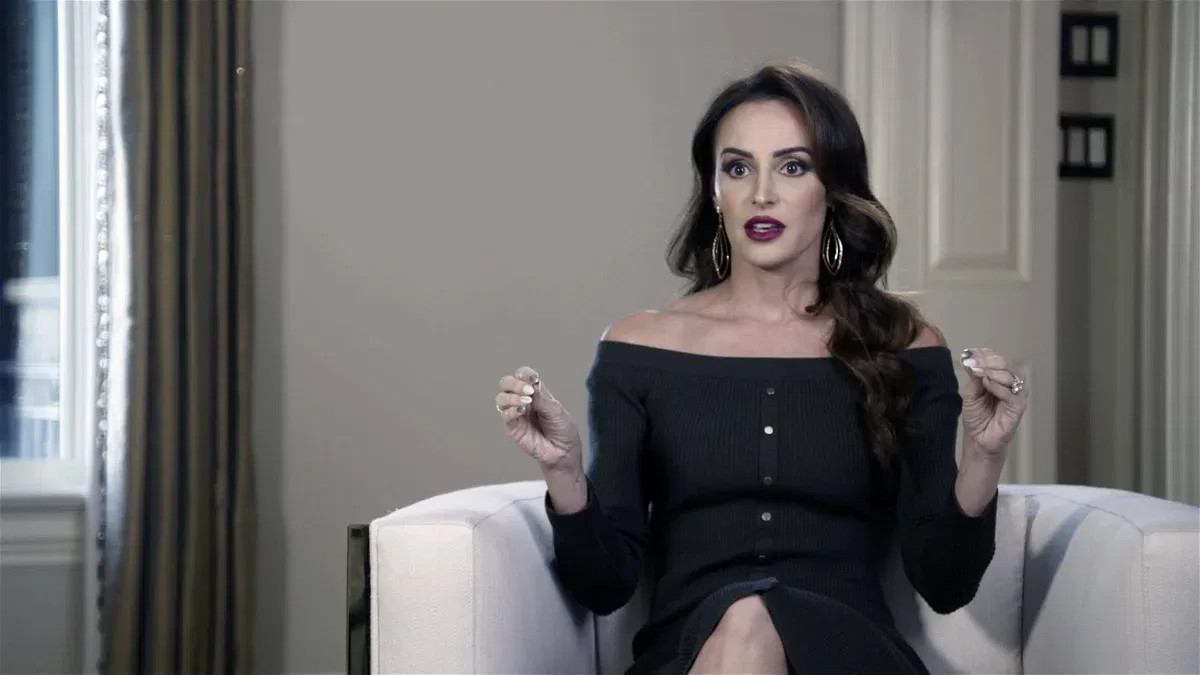

Back in 2019, Racing Wives was often remembered by fans as NASCAR’s attempt at reality TV stardom. It brought viewers a glimpse of life beyond the track. Airing on CMT, the show followed Samantha Busch, Whitney Dillon, Mariel Swan, and Amber Balcaen as they navigated the chaos of racing life, family, and friendship in the fast-paced NASCAR world. The fans watched it religiously, believing what they saw about the lives of the racing wives. But Samantha has just broken that bubble.
Watch What’s Trending Now!
Although it only ran for one season before being quietly canceled, Racing Wives still holds a nostalgic spot for viewers who remember the excitement around NASCAR finally getting its own “reality moment.” Eight years later, the wives have reunited, and they have secrets to spill about it.
Staged drama ruled Racing Wives
Samantha Busch did not hold back when reflecting on her experience filming the short-lived CMT series Racing Wives. “I want to talk about this. That was the most staged reality show, and it drove me nuts,” she said on her Certified Oversharer podcast, joined by Whitney Dillon, Mariel Swan, and Amber Balcaen.
Busch recalled how she repeatedly urged producers to focus on the genuine, behind-the-scenes drama that NASCAR families face, such as Kurt Busch’s major team switch and sponsorship uncertainty. However, she said those storylines were ignored in favor of manufactured conflict. “There was real drama in our lives,” she said. “One big thing was Kurt switching teams. That was huge, but all they wanted was the girl drama.”
Busch’s comments echoed earlier frustrations she had shared about how Racing Wives was produced. The show, which aired on CMT in 2019, was marketed as a candid look at the women behind NASCAR’s biggest stars. However, according to Busch, it prioritized scripted tension over authenticity. Reports at the time also noted that scenes were heavily edited to create interpersonal conflict, a hallmark of the “reality TV formula” CMT aimed for.
Busch’s husband, two-time Cup Series champion Kyle Busch, was transitioning between major team partnerships around that same period. That offered plenty of natural storylines, but few of them ever made it to air.
Mariel Swan, who co-starred on the show and joined Busch on the podcast, backed up those claims with her own experience of producer manipulation. “They gave us all different times to show up to set,” she explained. “They told you guys to get there around 3:45, but told me to come at 6:00. Then they said I was drunk the night before and late to filming.” Swan said she was stunned to learn how something as simple as staggered call times became the basis for a completely fabricated storyline.
“I was like, wait, how did we concoct this just from me getting a different call time?” she recalled. Her revelation highlighted how producers often created false narratives by engineering misunderstandings between cast members. It was a classic example of “frankenbiting,” a common reality TV tactic where editing and out-of-context audio clips create drama that never actually happened.
View this post on Instagram
Busch admitted that many of those behind-the-scenes manipulations did not become clear until years later. “Now thinking about that, I bet that’s what happened,” she said. “I went and got yelled at by a producer. But I’ve learned now, especially talking to Trish and Ashley, that they told us all very different things.”
Her comments suggested that the cast was not just misled individually but strategically kept apart so producers could build conflicting narratives. This aligns with other accounts from reality TV participants who have since revealed they were given selective or false information to provoke emotional reactions during filming.
At the time, Racing Wives was hyped as NASCAR’s crossover moment into mainstream entertainment. It was seen as a chance to showcase the glamor and grit of life in the sport’s inner circle.
Instead, it delivered a more Real Housewives-style portrayal that, according to Busch and Swan, left out the sport’s real challenges. Those included the constant travel, sponsor negotiations, and emotional toll of supporting their partners in such a high-pressure environment. “We wanted to talk about the real stuff,” Busch said. “But they only cared about the girl drama.”
Looking back eight years later, Busch’s candid remarks have reignited debate among NASCAR fans about the authenticity of sports reality television. What was once billed as a window into the lives of racing families now stands as an example of how entertainment priorities can distort the truth.
Is Kyle Busch again behind NASCAR’s series-capping rule?
For a long time, Kyle Busch raced almost everywhere he could, including Cup, Xfinity, and Truck. Even when he was already a top Cup Series driver, he regularly entered the lower series and often won.
By 2017, NASCAR capped the number of races Cup veterans could run, first 10 in Xfinity and seven in Trucks, then gradually cutting it to just five each by 2020. Fans called it the “Kyle Busch rule” since he was the main driver affected.
Busch still made the most of his limited entries, winning at least one Truck Series race every year since 2013. After selling his Kyle Busch Motorsports team in 2023, he kept running five Truck races a year, sticking to that pattern even after his Xfinity exit in 2021, when he reached 102 career wins.
Now, NASCAR plans to ease those limits in 2026. Cup drivers with three or more years of experience will again be allowed up to 10 Xfinity and eight Truck races, though they still can’t race in playoff or championship events.
The change comes as Busch’s participation has dropped, as he has run just one Xfinity race in the last two seasons, and a few others have been taking advantage of the old limits. It’s clear NASCAR’s tougher rules were largely a reaction to Busch’s dominance, and with him scaling back, they’re ready to relax them again.



